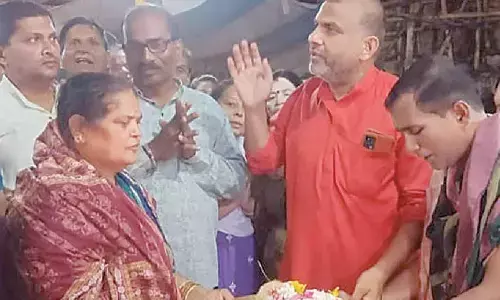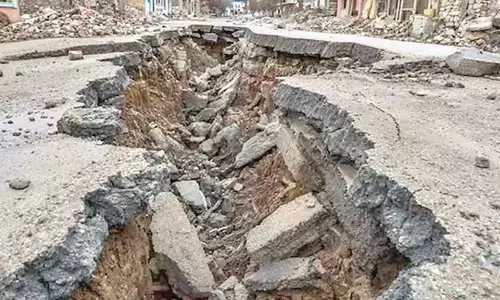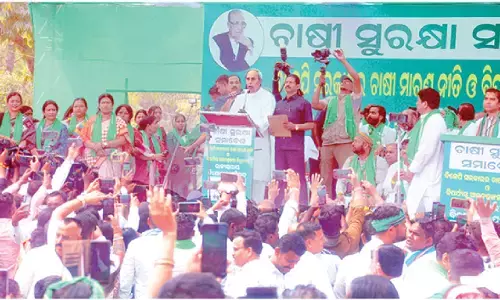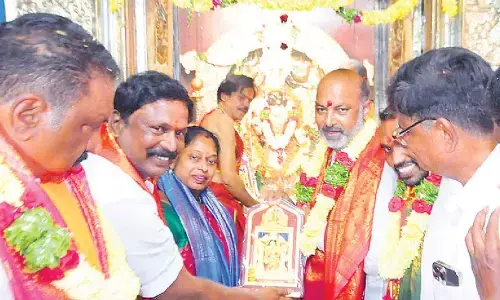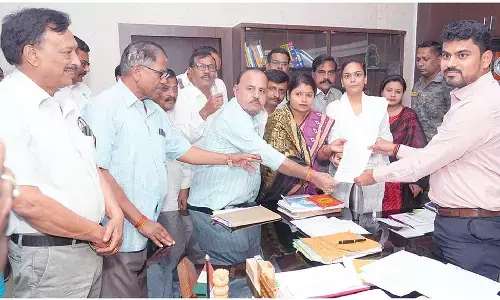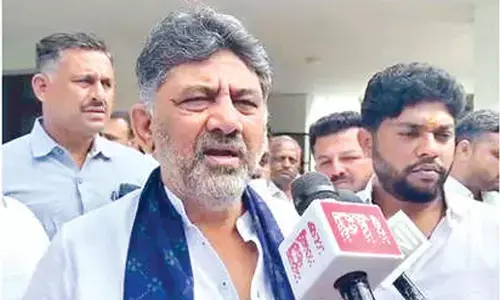Call money thrives on mafia politics
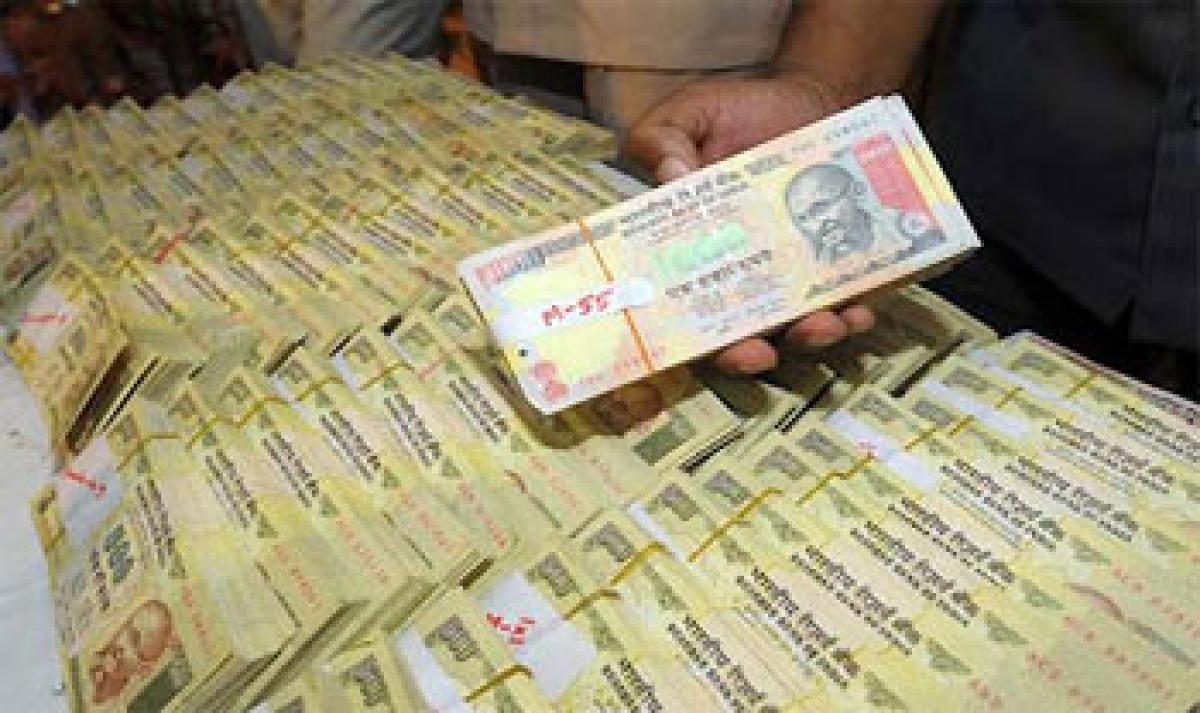
The micro financing companies squeezing the common man who has little or no access to formal institutional credit rocked the then united Andhra Pradesh. The issue subsided following the intervention by the government and the Reserve Bank of India (RBI).
 Call money scandal in Amaravati region in Andhra Pradesh is not just a money racket but even a highly exploitative sex racket induced by the illicit finance business. Call money provides the mafia with huge dividends. Perhaps, no other business can yield such an income. Poor are forced to pay 10 to 25 per cent interest per month which is 50 times higher than what a luxury car owner pays as interest on a loan he takes to purchase a car. Call money racketeers’ alleged nexus with politicians has further shaken the conscience of society.
Call money scandal in Amaravati region in Andhra Pradesh is not just a money racket but even a highly exploitative sex racket induced by the illicit finance business. Call money provides the mafia with huge dividends. Perhaps, no other business can yield such an income. Poor are forced to pay 10 to 25 per cent interest per month which is 50 times higher than what a luxury car owner pays as interest on a loan he takes to purchase a car. Call money racketeers’ alleged nexus with politicians has further shaken the conscience of society.
The state police giving a clean chit to people’s representatives even before a complete investigation has taken place shows the extent of political pressure on the law enforcement machinery. The time has come for Chandrababu Naidu, whose USP is strong administration, to energise his official machinery – both civil and police – to act tough on crime syndicates independent of the political umbrella they hold
The micro financing companies squeezing the common man who has little or no access to formal institutional credit rocked the then united Andhra Pradesh. The issue subsided following the intervention by the government and the Reserve Bank of India (RBI).
But, the problem resurfaces with vengeance. The poor and the underprivileged become vulnerable to such money spinning rackets due to abysmal access to institutional credit. The micro finance companies were accused of squeezing the loanees with exorbitant rates of interest while enjoying favourable treatment by the commercial banks.
The micro finance which began as social entrepreneurship soon transformed into a speculative business. Still it remains largely as an economic malaise. But, the recent call money scandal has multiple ugly facets. It’s not just a money racket but even highly exploitative sex racket induced by the illicit finance business. The alleged nexus with politicians has further shaken the conscience of society.
Certain section of bureaucracy which is supposed to curtail such illegal activities seems to be an accomplice. Despite all this happening in broad day light, the ruling establishment remained a passive spectator. The interest shown in learning mega city plans from Japan and Singapore was in fact lacking in establishing rule of law.
World-class cities cannot be built up with buildings and other lifeless infrastructure alone. They require human beings who have opportunities to a life of dignity and self-respect. Thus even the Chief Minister was compelled to concede that illegal activities like spurious liquor or call money scandals would damage the reputation of the emerging state capital, Amaravati.
But, such a concern would finally end up as an empty rhetoric if it is not backed by political will which seems to be now seriously lacking in Andhra Pradesh.
Call money like finance mafia cannot thrive without the political patronage. The politician sees in it easy money. Thus, the nexus between these finance syndicates and politicians with criminal intent. Still the underlying structural dimensions cannot be ignored. The abhorrent levels of poverty and livelihoods that do not support even the minimum economic needs, the very widening inequalities, and the asymmetry of power between the victims and the perpetrators are at the root of the problem.
The criminalisation of finance is proving to be much more pernicious than the volatility created by the globalisation of finance.
In fact, despite the inhuman business successfully thriving for years in the city like Vijayawada, there was no vigil on such a dangerous white collar crime that has many other dimensions. Even this scandal has come to light due to routine investigation that ultimately landed the police on such a mind-boggling activity. Seasoned policemen are also shocked by the gravity and the intensity of the problem. Until now, the administration seems to be catching only the overt operators. The well-connected as usual are finding an escape route.
The call money provides the mafia with huge dividends. Perhaps, no other business can yield such an income. Poor are forced to pay 10 to 25 per cent interest per month which is 50 times higher than what a luxury car owner pays as interest on a loan he takes to purchase a car. No law permits such an unprecedented rate of interest. The criminal methods used to ensure repayment are uncivilised, leave alone absolutely illegal.
The call money business mainly targets the petty traders who lack access to cheap capital to run their businesses. As a result, the margin of these petty traders is largely squeezed by the money lenders. The financial institutions and governments which tailor the monetary and fiscal policies to suit the capital needs of big business pay no concern to the investment requirements of these petty traders.
As the entire call money is illegal, the black money, unaccounted money, mainly flows through this finance business, the call money and the black money thus mutually support each other to thrive. The bewildering dimension of the business is the atrocious practice of drawing helpless women into prostitution. Despite complaints by some of the women victims earlier, the police failed to act in time indicating the political clout the mafia enjoys. Such inhuman and uncivilised exploitation of women caught in financial needs not just indicate a crime but denotes the failure of the State agencies and the immorality that breeds from economics of pauperisation.
The loanees are forced to sign on white papers, empty cheques, and promissory notes. Even the meager assets of the poor are illegally alienated. The modesty of the women is outraged in return for the money they have taken.
The interplay between local politics and the call money is taking curious twists and turns. The city police commissioner going on leave at a time when he has to preside over crucial investigation obviously raises serious questions. The state police giving a clean chit to people’s representatives even before complete investigation has taken place shows the extent of political pressure on the law enforcement machinery.
Perplexed by allegations of ruling party leaders’ involvement in the call money scandal, there is a frantic attempt to absolve politicians. In fact, the police allegedly tried to hush up or belittle the case at the first instance. But, the inherent dynamics of the case is such that the issue got blown out of proportions. Now, there is a renewed attempt to undermine the scandal.
Sources tell that the police are also receiving political signals to go slow on the case. There is also an attempt to shift the focus from Vijayawada in an attempt to dilute the case. Thus the statements that call money writ runs large over the entire state and politicians of all hues are allegedly involved in it. But such an explanation cannot hold water as the crime is of immense magnitude.
The Chief Minister’s statement that such scandals rob the shine out of the new capital can be interpreted in its wider dimension. The rising of Amaravati has also turned out to be an emerging opportunity even to the scamsters, illicit traders, mafia politicians etc. The nexus between local politicians and the top political bosses got strengthened due to geo political advantage the state capital enjoys. The booming real estate and the increased volume of fiscal transactions in the run-up to the emergence of a new city seem to have also fuelled the finance boom.
The unbridled consumerism, the growing cost of education, healthcare, the lucrative real estate etc. have made many sections of society debt-ridden and thus making them vulnerable to such mafia finance, as institutional credit does not cover this burgeoning expenditure. The illicit finance syndicates are harvesting this social and economic landscape with increased political patronage as a shield. The ruling establishment has also sent a wrong signal to the administration and police with their statements. The bureaucracy was given a clear mandate to patronise ruling party’s political machine.
There seems to be a paradigm shift in the approach to the governance of Chandrababu Naidu in the present innings. In fact, Y S Rajasekhara Reddy gave a free hand to the party cadres. Naidu seems to be inspired by YSR political legacy at least on this count. The time has come for Chandrababu Naidu, whose unique selling proposition is strong administration, to energise his official machinery – both civil and police – to act tough on crime syndicates independent of the political umbrella they hold.
Prof K Nageshwar


